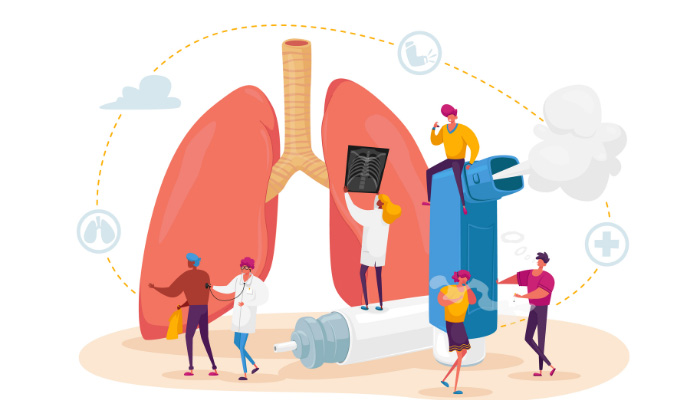
What is a chronic disease?
A disease or condition which generally stays for 3 months or longer and may get worse over time. Chronic diseases tend to occur in older people and are usually controllable but not curable. The most common chronic diseases are cancer, heart disease, arthritis, diabetes, and stroke.
The following is a short list of risky behaviors which gives rise to many chronic diseases:
- Exposure to secondhand smoke and consuming tobacco.
- Poor nutrition, such as a diet low in vegetables and fruits and high in sodium and saturated fat.
- Lack of exercise.
- Excessive alcohol consumption.
If you have a chronic disease such as diabetes, arthritis, heart disease, or another chronic condition, a healthier diet and more exercise, such as brisk walking, cycling, jogging, and swimming, can help you better manage your disease, prevent complications, and extend your life.
Treatment for chronic diseases at Texas Specialty Clinic:
- Texas Specialty Clinic provides treatment for various chronic diseases.
- Our doctors diagnose the condition and help you with the further successful treatment
- At Texas Specialty Clinic we aim to give comfortable treatment to patients.
- Our team of professionals has good experience in the treatment of chronic diseases.
- If you have symptoms of any chronic disease, visit the doctor immediately.
- Book an appointment at Texas Specialty Clinic and get treatment from the finest doctors in the country. Call us now, dial (469) 545-9983.

10 Common Chronic Diseases are:
- Diabetes: Diabetes is a chronic condition that arises when the pancreas does not create enough insulin or when the body does not utilize the insulin that is produced adequately. The insulin hormone controls blood glucose levels in the body.
- Stroke: A stroke is a disease that affects the arteries that lead to and within the brain. A stroke takes place when a blood vessel that carries oxygen and nutrients to the brain is blocked by a blood clot or rupture (or rupture). When that happens, parts of the brain can’t get the blood (and oxygen) they need, causing the brain and brain cells to die.
- Arthritis: Arthritis is swelling in one or more joints. The symptoms of arthritis include joint pain and stiffness, which usually worsen with age. Severe arthritis, especially when it affects the hands and arms, can make daily life difficult.
- Cancer: Cancer can be closely monitored and treated, but sometimes it does not go away. Like diabetes and heart disease, it can be a chronic (ongoing) disease. It is common in certain types of cancer, such as ovarian cancer, chronic leukemia, and some lymphomas.
- Obesity: Obesity is an abnormal and dangerous condition in which a large surplus of fats is stored within the body. Obesity is a common chronic disease among adults and children that continues to increase in the United States.
- Epilepsy: Epilepsy is a chronic disease of recurrent seizures caused by abnormal electrical signals produced by damaged brain cells. An uncontrolled burst of electrical activity in brain cells causes a seizure.
- Alzheimer’s Disease: Alzheimer’s disease is a progressive neurological disorder that causes brain shrinkage (atrophy) and brain cell death. Alzheimer’s disease is the most common cause of dementia, which is an ongoing decline in mental, behavioral, and social abilities that affects a person’s ability to function independently.
- Crohn’s disease: Crohn’s disease causes inflammation and irritation in the digestive tract. Crohn’s disease most commonly affects the starting point of the small and large intestine. Any part of the digestive tract, from the mouth to the anus can be affected due to Crohn’s disease.
- Cystic Fibrosis: Cystic fibrosis is a disease that causes the body to produce abnormally thick mucus that can clog the lungs and cause lung infections. It also blocks other vital organs of the digestive system. Early detection and treatment can improve the quality and lifespan of people suffering from this disease.
- Eating disorders: Eating disorders are behavioral disorders characterized by severe and persistent disturbances in eating behavior and associated distressing thoughts and feelings. They can turn into serious conditions that affect mental, physical, and social functioning.
How to prevent chronic disease?
Stopping Smoking: Quitting smoking (or not starting at all) reduces your risk of serious health problems such as heart disease, cancer, type 2 diabetes, lung disease, and premature death.
Healthy Eating: A healthy diet can help prevent, delay, or treat heart disease, type 2 diabetes, and other chronic diseases. A balanced, healthy eating pattern includes a variety of fruits, vegetables, whole grains, lean protein, and low-fat dairy products, and limits added sugars, saturated fats, and sodium. If you are overweight, losing 5% to 7% of your weight can help prevent or delay type 2 diabetes.
Do regular Exercise: Regular physical exercise will aid to prevent, delay, or treat chronic diseases. Aim for at least 150 minutes per week of moderate-intensity physical activity (such as brisk walking or gardening) and at least two days per week of strength-building activity.
Stop Drinking Alcohol: Excessive drinking can lead to high blood pressure, various types of cancer, heart disease, stroke, and liver disease. You can reduce these health risks by stopping alcohol consumption.

To get the best treatment for chronic diseases visit Texas Specialty Clinics. Call us now at (469) 545-9983
